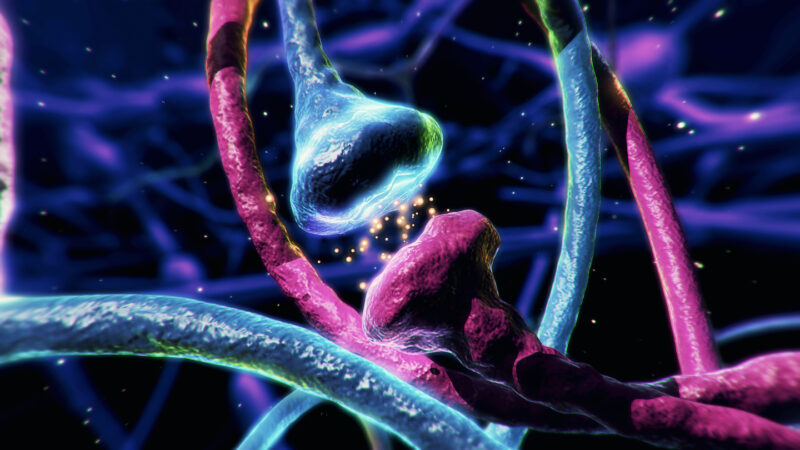Dopamine (noun, “DOPE-uh-meen”)
Dopamine is a chemical messenger in the brain. It helps you learn and focus and even motivates you to achieve your goals.
Though related to feelings of happiness or satisfaction, think of dopamine more as the chemical that drives us to achieve those feelings, rather than happiness itself. For example, when working on a project you enjoy — such as drawing or solving a puzzle — your brain releases dopamine. And this motivates you to keep going. This chemical focuses our attention on the current task and helps us organize our thoughts. It even plays a role in how we plan the steps we must take to finish a job.
Dopamine is a neurotransmitter. That’s a type of chemical that carries messages between neurons in the brain. A tiny gap separates each neuron, or nerve cell, from the next. This gap is called a synapse. And neurotransmitters like dopamine can cross this gap. That’s how they transmit a signal from one nerve cell to another.
Scientists have linked some conditions to low dopamine levels. ADHD — attention-deficit hyperactivity disorder — is one such example. Doctors can treat ADHD with medications that increase the brain’s dopamine level. However, doctors must prescribe these medications carefully and in low doses, as too much can cause problems.
Some illicit drugs can cause the brain to release too much dopamine. Activities such as eating junk food and playing video games can also cause this problem in some people. And this can lead people to do more and more of the activity that causes the brain to release this feel-good chemical. If a person begins to neglect school, friends or other important parts of their life to carry out a dopamine-triggering activity, addiction may develop.
Dopamine doesn’t just help us think. It helps us move, too. Dopamine helps us use our muscles properly, allowing us to walk, draw and type. That’s why some diseases involving low dopamine affect people’s ability to move. Parkinson’s disease is one example. Scientists have linked this disease to a loss of cells in the brain that release dopamine. With this understanding, they can work on finding ways to replace the dopamine loss and help people manage their symptoms.
Dopamine can also work outside the brain as a hormone, which is a chemical messenger that is released in the bloodstream. In the body, dopamine helps control blood pressure, regulates blood salt levels and more.
In a sentence
Music can evoke emotional responses by increasing dopamine release in the brain.

















